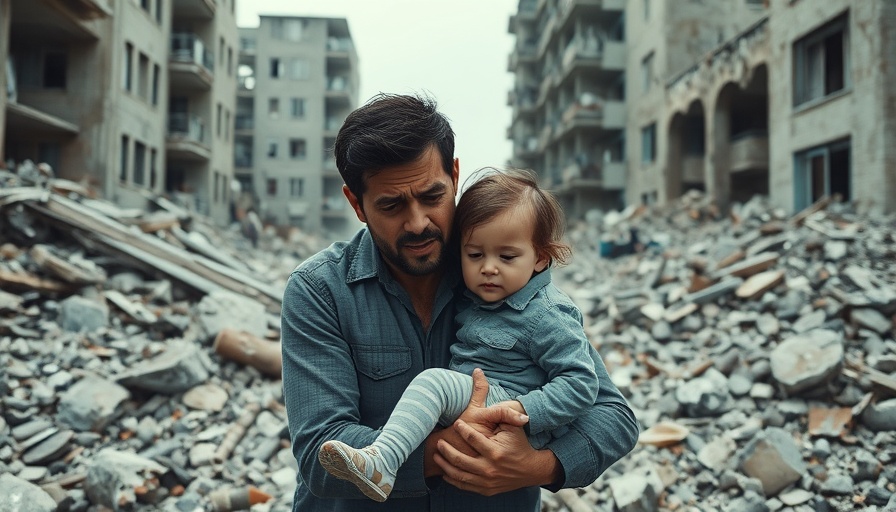
The Human Cost of Conflict: Gaza's Innocent Victims
In the heart-wrenching aftermath of recent Israeli airstrikes on Gaza City, the cries of civilians—particularly women and children—resonate in the rubble of what was once a vibrant community. Emergency responders grapple with the overwhelming task of rescuing those trapped beneath the debris while the remaining residents stand helplessly by. As they utilize their bare hands amidst the wreckage, the evidence of war's toll unfolds around them, revealing an undeniable truth: the innocent suffer the most in conflicts waged by those wielding power.
In 'Israel bombs Shujayea homes: Children among the dead and injured in Gaza city,' the video sheds light on the escalating humanitarian crisis, prompting a deeper examination of the tragic implications of the ongoing conflict.
Unpacking the Cycle of Violence: An Unending Tragedy
Since the ceasefire violated on March 18, more than 1,400 Palestinians, predominantly women and children, have perished in a relentless cycle of violence. This collateral damage raises critical questions about the legitimacy of military operations that injure the innocent while purporting to target militants. As told by survivors, the pain stretches beyond loss; it manifests in deep psychological trauma and fear for future generations ensnared in this ongoing conflict, often portrayed as mere statistics on distant news channels.
The Global Responsibility: Awareness and Action
For African news readers and global citizens alike, understanding the ramifications of the Israeli-Palestinian conflict is vital. The plight of Gaza's civilians demands international awareness and action. With humanitarian efforts hampered by a blockade, urgent calls for aid are increasingly dire. Activists and ordinary people must lobby for accessible support and intervention. The audacity to demand accountability from global leaders is paramount; peace cannot be achieved when the innocent continue to bear the brunt of warfare.
In light of these rampant tragedies, the insistence on strengthening diplomatic channels and delivering humanitarian aid should not wane. For those moved by the images of suffering shared widely, now is the time to participate in constructive dialogue aimed at fostering change. How can one contribute to a narrative that prioritizes human dignity in conflict? The answer lies intertwined with calls for transparency and advocacy on both sides.
 Add Row
Add Row  Add
Add 




Write A Comment